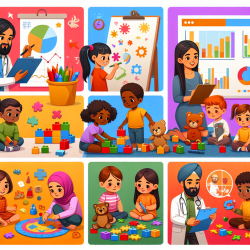Natural disasters can have profound impacts on mental health, with women often facing unique challenges. A recent qualitative study titled The mental health needs of women in natural disasters: A qualitative study with a preventive approach sheds light on these challenges and offers valuable insights for practitioners aiming to improve their skills and provide better care.
The Importance of a Preventive Approach
The study emphasizes the need for a preventive approach to address the mental health needs of women in disaster scenarios. It identifies two main themes: internal physical factors and external environmental factors. These themes encompass biological, social, political, legal, cultural, spiritual, psychological, and lifestyle dimensions.
Key Findings and Themes
- Biological Factors: Women's physiological vulnerabilities during pregnancy, menstruation, and other life stages require special attention to their mental health needs.
- Social Factors: Social interactions, values, and roles significantly impact women's mental well-being. Empowering women as social capital is crucial.
- Political and Legal Measures: Gender-specific policies and regulations can influence women's mental health. Tailoring these measures to support women is essential.
- Cultural and Spiritual Measures: Cultural beliefs and spiritual practices can either support or hinder women's mental health during disasters.
- Psychological Factors: Training in problem-solving and life skills can address unmet psychological needs effectively.
- Lifestyle Factors: Modern lifestyle demands such as fitness and self-care play a role in women's mental health.
Implications for Practitioners
The study's findings highlight the multifactorial nature of women's mental health needs during disasters. Practitioners can enhance their skills by adopting a holistic view that integrates these diverse factors. Here are some actionable steps:
- Adopt a Multidisciplinary Approach: Collaborate with professionals from various fields such as psychology, social work, and public policy to address the comprehensive needs of women.
- Focus on Empowerment: Develop programs that empower women socially and economically to enhance their resilience in disaster situations.
- Cultural Sensitivity: Incorporate cultural understanding into mental health interventions to ensure they are relevant and effective.
- Advocate for Policy Change: Engage in advocacy efforts to promote gender-sensitive policies that support women's mental health.
The Path Forward
This research underscores the importance of addressing women's mental health needs through a preventive lens. Practitioners are encouraged to delve deeper into the study's findings and consider conducting further research to expand knowledge in this critical area. By doing so, they can contribute to more effective disaster response strategies that prioritize women's well-being.
To read the original research paper, please follow this link: The mental health needs of women in natural disasters: A qualitative study with a preventive approach.










